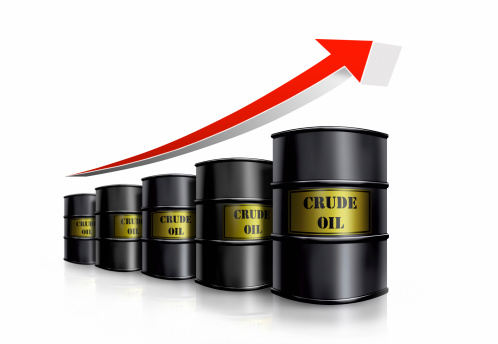Crude oil prices jumped Monday morning and blasted even higher through the noon hour to hit a daily high near $49 a barrel on West Texas Intermediate (WTI) for October delivery. The immediate cause appears to be the OPEC Bulletin for August, released Monday by the Organization of the Petroleum Exporting Countries (OPEC).
Here are some selected highlights from the document:
Apart from the obvious loss of much-needed revenue required for Member Countries’ socio-economic development, there are growing fears that, under the current low-price scenario, investment in future capacity additions will continue to be shelved or cancelled altogether.
Failure to invest now could mean prices in the coming years spiking to levels inconsistent with what is considered ‘reasonable’ for both producers and consumers.
The one good thing to come out of a period of lower prices is that demand customarily rises as cheaper fuel encourages more usage by the consumers. And the current situation appears to be no exception.
… [B]etter-than-expected growth in global oil demand so far in 2015, together with signs of a pick-up in the economies of the major consuming countries, [indicates] crude oil demand in the coming months should continue to improve.
ALSO READ: What Warren Buffett Sees in Phillips 66 That You Don’t
Following the history lesson and a declaration that the low-price regime the cartel brought down on oil producers everywhere has succeeded in boosting price, we get the payoff:
Needless to say, OPEC, as always, will continue to do all in its power to create the right enabling environment for the oil market to achieve equilibrium with fair and reasonable prices. … [However], OPEC will protect its own interests. As developing countries, its Members, whose economies rely heavily on this one precious resource, can ill afford to do otherwise.
Oil traders appear to be reading this as a pledge to rein in production, or at least, to avoid letting production get any higher. That will prop up prices — if it works. Color us skeptical.
It is no secret that low crude prices are hammering Venezuela, Nigeria and other OPEC members, but it is nearly inconceivable that the Saudis, who drove the move to maintain share at any price, are going to make any substantial change this quickly. More likely, OPEC leadership agreed to take to the bully pulpit on behalf of those members hit the hardest, knowing that any indication that the cartel was ready to resuscitate pricing by (obliquely implying) lowering production would give crude a shot in the arm.
The effects of the shot are likely to be short-lived. Bloomberg reported Monday that OPEC production rose by 150,000 barrels a day in August to 32.3 million barrels a day, well above the cartel’s agreed quota of 30 million barrels.
ALSO READ: Analyst Says Do Not Wait for Oil Bottom, Buy Quality Large-Caps Now
Get Ready To Retire (Sponsored)
Start by taking a quick retirement quiz from SmartAsset that will match you with up to 3 financial advisors that serve your area and beyond in 5 minutes, or less.
Each advisor has been vetted by SmartAsset and is held to a fiduciary standard to act in your best interests.
Here’s how it works:
1. Answer SmartAsset advisor match quiz
2. Review your pre-screened matches at your leisure. Check out the advisors’ profiles.
3. Speak with advisors at no cost to you. Have an introductory call on the phone or introduction in person and choose whom to work with in the future
Get started right here.
Thank you for reading! Have some feedback for us?
Contact the 24/7 Wall St. editorial team.



